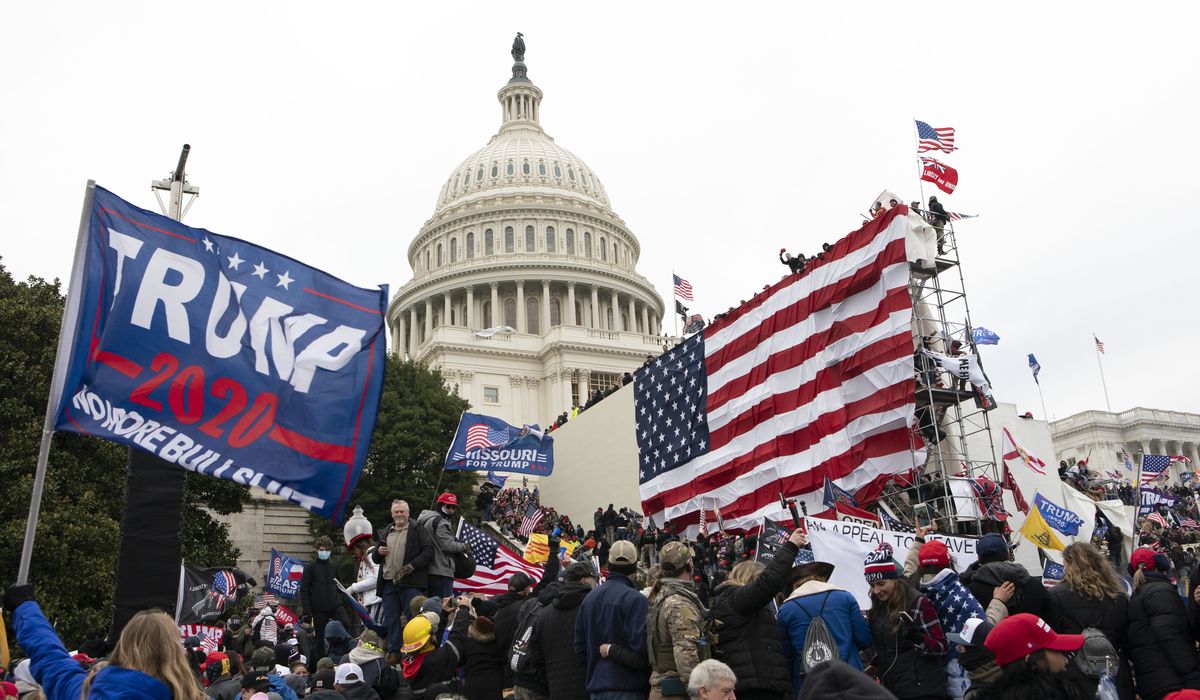
A federal appeals court on Thursday temporarily blocked the release of former President Donald Trump’s White House records to the House committee investigating the Jan. 6 Capitol riot.
A three-judge panel for the U.S. Court of Appeals for the District of Columbia Circuit granted Mr. Trump’s emergency motion for an injunction to halt the National Archives from releasing the records at 6 p.m. Friday.
The court also scheduled arguments in the case for Nov. 30, which will take place before three judges appointed by Democrats: Patricia Millett and Robert Wilkins, both Obama appointees, and Ketanji Brown Jackson, a Biden appointee.
The former president’s call logs and draft speeches are among the documents that the committee was set to receive as part of its probe into the Jan. 6 attack on the Capitol, in which a mob stormed the building in an attempt to stop the certification of the 2020 presidential election results.
Mr. Trump sued the committee and the National Archives in D.C. federal court on Oct. 18 after President Biden waived executive privilege on the records. Mr. Trump argues that he has the right to executive privilege as a former president.
U.S. District Court Judge Tanya Chutkan denied his request for an injunction on Tuesday, writing: “Presidents are not kings, and plaintiff is not president.” She also rejected his emergency motion to halt the release of the records pending his appeal.
Mr. Trump appealed to the appeals court on Wednesday and asked the court on Thursday for an administrative injunction and to delay any ruling on the case until next week.
“Absent judicial intervention, President Trump will suffer irreparable harm through the effective denial of a constitutional and statutory right to be fully heard on a serious disagreement between the former and incumbent president,” the filing states.
The White House on Thursday also told a lawyer for Mark Meadows, Mr. Trump’s former chief of staff, that Mr. Biden plans to waive any executive privilege that would prohibit Mr. Meadows from cooperating with the committee.
Mr. Meadows is among dozens of people subpoenaed by the committee as part of its probe.
His attorney, George Terwilliger, however, said Mr. Meadows still “remains under the instructions of former President Trump to respect longstanding principles of executive privilege” and that it “now appears the courts will have to resolve this conflict.”
In a letter sent to Mr. Terwilliger, Committee Chairman Rep. Bennie G. Thompson, Mississippi Democrat, said there is “no legal basis” for Mr. Meadows’ to defy the subpoena and if he does, the committee would consider holding him in contempt of Congress.
If Mr. Thompson is found to be in contempt, the committee could send a referral to the Department of Justice for criminal charges against him.
The committee voted last month to hold former Trump aide Steve Bannon in contempt for skirting a subpoena and recommended criminal charges, but the DOJ has not yet decided whether to charge him.








